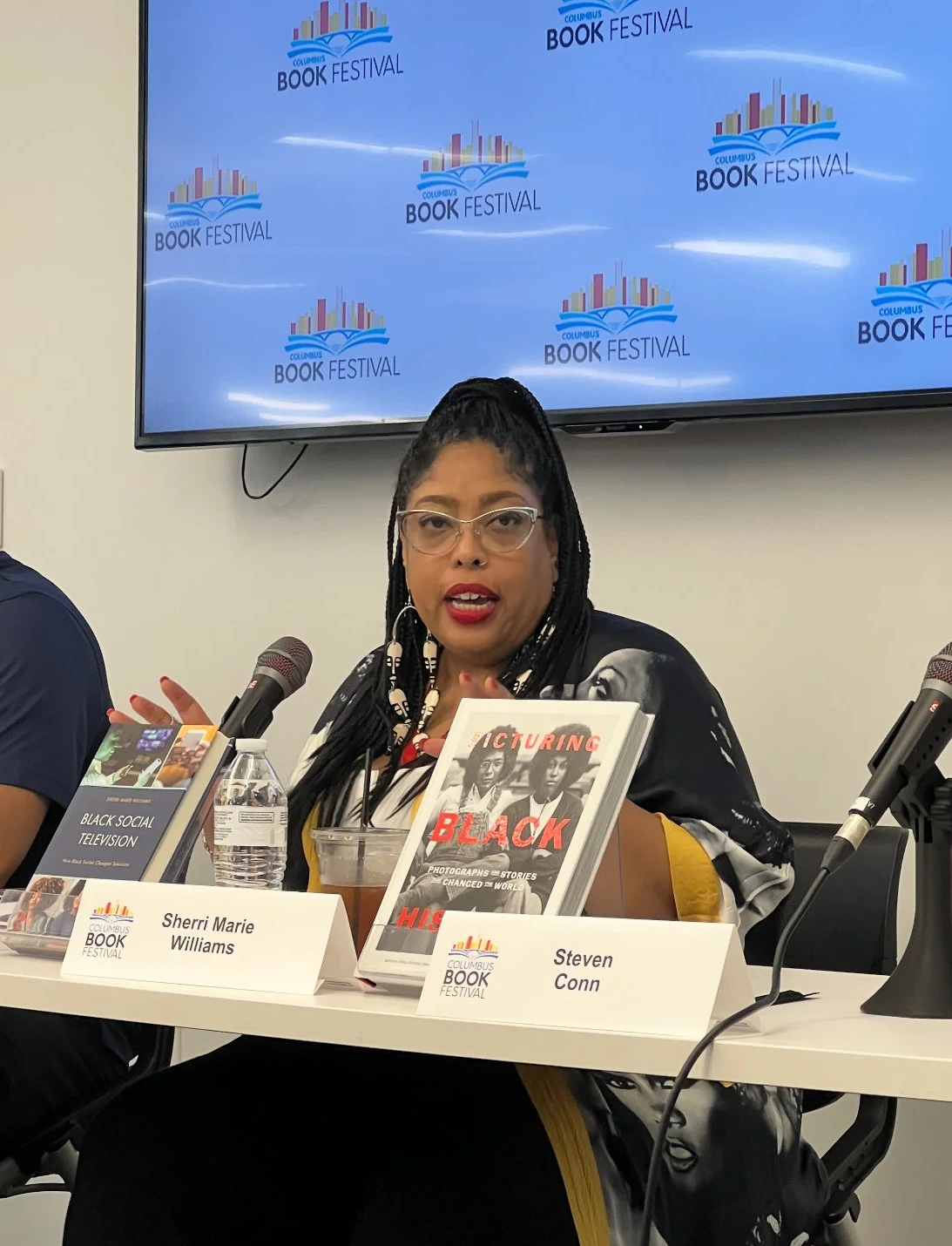Sherri Williams believes that storytelling can be used as a tool for liberation.
She became a journalist because as a teenager in the 1980s she mostly saw news stories of Black people connected to crack, crime and chaos. She knew there was more than that to Black people’s lives, so she committed to dedciate her career to telling the spectrum of stories about Black life.
Williams started her professional writing career 25 years ago as a writer for the Associated Press in Jackson, Mississippi. She worked as a journalist for a decade and she covered a variety of beats including education, federal courts, social services, pop culture/youth culture and marginalized communities. As she transitioned into academia Williams continued to write about health disparities, representation, race and gender for national media outlets including Essence, The Washington Post, NBC, CNN, Self, ELLE, The Nation, The Crisis and Heart & Soul.
Williams still sometimes writes for national newsrooms. As an academic Williams’ research was published by scholarly journals including Feminist Media Studies, Mass Communication and Society, Journalism & Mass Communication Educator and the Howard Journal of Communications. Williams’ first book Black Social Television: How Black Twitter Changed Television documents how Black audiences’ digitial activism helped change the way that Black people are represented and how television is watched, developed and produced. Williams is now working on her next book which will be about identity and journalism.
Read Sherri’s Work
First Day Back at Work (Washington Post)
Black America and the COVID-19 Pandemic (The Crisis Magazine)
Racism and the Invisible Struggle of Mental Health in the Black Community (Self Magazine)
It Takes a Squad to Care for an Elder (ELLE.com)
Historic Exclusion From Feminist Spaces Leaves Black Women Skeptical of March (NBC)
Telling Black Women's Real-Life Stories Could be Oscar Gold (NBC)
Book deserts leave low-income neighborhoods thirsty for reading material (NBC)
